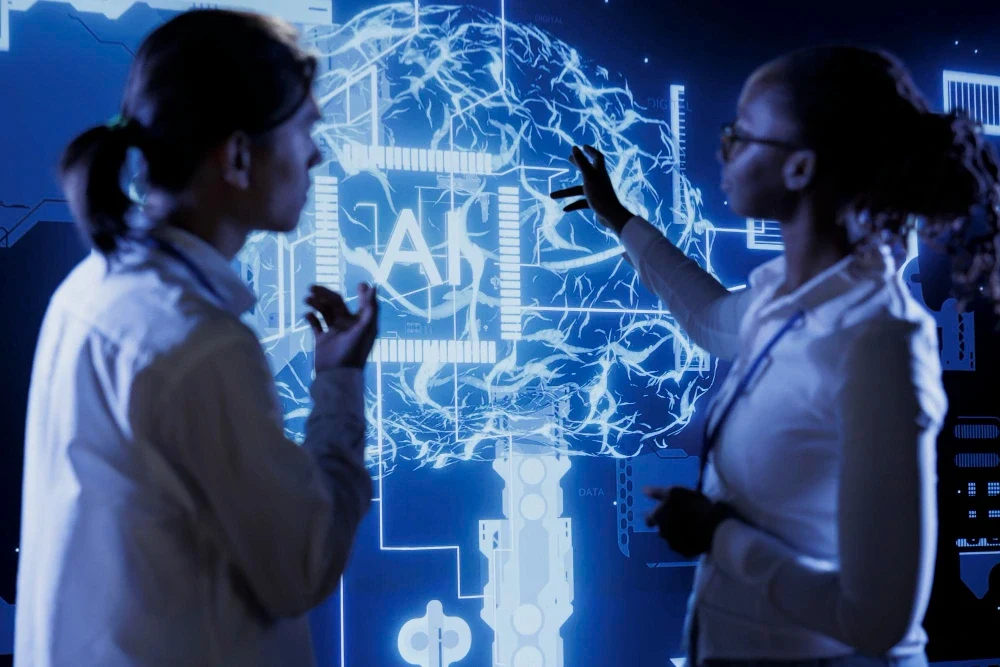
The Importance of AI & Automation in Hiring with HRMS
Automation and Artificial Intelligence have transformed how hiring is conducted today compared to the past. Companies require more effective AI-powered solutions that automate HR processes such as manual jargon filtering, monotonous manual processes, and bias discrimination concerning hiring. Automation integrated into Human Resource Management Systems (HRMS) has the potential to greatly improve the accuracy and efficiency of hiring.
In this blog, we’ll explore the importance of AI and automation in hiring, how they enhance recruitment through HRMS, and what the future holds for AI-driven hiring.
The Need for AI & Automation in Hiring
Recruitment is among the most important organizational functions, and it has its own challenges.
Lengthy hiring periods: Scanning through and trying to categorize hundreds of resumes is tough.
Ineffective spending on recruitment: Losing money during recruitment wastes funds because of inefficient practices.
Hiring without considering diversity: Doing so changes the hiring process.
Candidate dissatisfaction: Not getting back to candidates, together with lengthy hiring periods, results in a poor experience.
AI and automation address these challenges by streamlining recruitment, improving decision-making, and enhancing the candidate experience.
How AI is Enhancing Recruitment with HRMS
Automation makes it easy for recruiters to collect necessary documentation from potential candidates even before formal interviews are conducted. The automation systems are much more efficient and quick at removing unproductive documentation as opposed to people where it leads to delays in forming decided-upon outcomes.
1. Resume screening: First resume-sorting booths can scan applicants resumes hoping to get a CV from which at least a percent of people applying have a degree relevant to a job offered. From there, those with lesser qualification documents are removed and remaining ranked. 2. Most relevant Candidate Selection: Using the required skill sets for the positions and having a predetermined standard, these systems are able to collaboratively browse through job entries and through numerous social media attributes and identify the most qualified candidates. 3. Predictive Analytics for Hiring Decisions: Staffing and acceptance components evaluation through program aiding predict application requirements through using information accumulated in advance through accepting candidates effects and working over extensive periods of time records 4. AI-enhanced Chatbots for Primary Communication and Screening: With predefined criteria in place, AI chatbots can interact with candidates, resolve their questions, and even conduct preliminary interviews. They help in saving time and elevating the experience of applicants.
The Impact of Automation on the Hiring Process
1. Minimize Time-to-Hire Incorporating automation in the hiring cycle speeds up each of its stages, starting from job advertising to onboarding, by removing monotonous administrative work. Recruiters are likely to fill positions more quickly with the help of automation. 2. Improving Candidate Experience Candidates appreciate a well-organized and smooth process during hiring. Automated chatbots, updated information, and automated instruction feedback increases communication and applicant engagement. 3. Reducing Bias and Increasing Hiring Accuracy AI is able to analyze candidates’ records with complete objectivity which removes bias in hiring decisions. This allows more diversity and guarantees that the best candidates are chosen based on competencies instead of their personal backgrounds.
Key AI & Automation Features in HRMS
1. AI-Powered Job Matching AI features on HRMS platforms can enhance the alignment of job descriptions with the candidate’s profile which helps to ensure that the candidate’s skills offers are in tandem with what the job entails. 2. Automated Interview Scheduling Automation tools in HRMS aid in the reduction of back-and-forth communication between candidate and recruiter as interview schedules become easier to coordinate. Candidates also enjoy a more seamless experience during the interview. 3. AI-Driven Skill Evaluation AI technology is able to conduct automated skill assessment and online evaluation in a more data-centered approach to the hiring process by evaluating candidates through real-life situations. 4. Onboarding Process Automation Once a candidate is selected, the automation process accepts the documents, assigns necessary trainings, and orients the new employee with policies which results in smoother onboarding process. Obstacles & Prospective AI Head Hunting Solutions
Challenges & Considerations of AI in Hiring
With all the speed and precision automation and AI bring to the table, there are other harrowing challenges that need to be dealt with. Integration with Human Intervention: While most aspects of AI can drive hiring communication, a human operator is still needed on the hiring side to make final choices. Assured AI Algorithm Neutrality: For hiring recommendations made by AI cannot be biased, there is dire need to train the models using neutral data sets Ensuring Data Privacy & Security: Managing candidate information necessitates strict adherence to data protection regulations.
Future Trends of AI & Automation in HRMS
With predicted developments like AI heuristic workforce planning and enhanced AI-powered customization and engagement, there is hope for improvement in recruitment through automation and AI. Ai heuristic workforce planning: HR departments can have effective hiring strategies developed if they are able to anticipate employee numbers. Enhanced AI powered customization and engagement: Recruits will benefit from enhanced personalization through AI recommendation engines that optimize jobs and engagement strategies. Deep Learning Adaptive AI Systems: AI based systems will continue to evolve in order to improve accuracy in the hiring process.
Conclusion
The automation of AI and automation allow algorithms and policies to drive performance through HRMS systems. The recruitment process is faster, smarter and highly effective. With AI powered resume screening, predictive analytics, unattended chatbots, and automated scheduling systems, usage of bias free AI can radically improve hiring processes and the overall user experience. The increasing use of AI and automation in HRMS systems will enable organizations to gain an edge in competing for top talents and in building a future-ready workforce.




